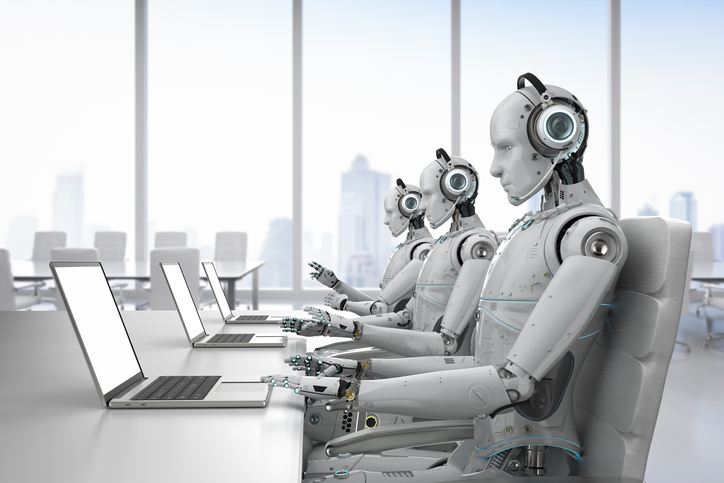The world of work is changing, and artificial intelligence (AI) is playing a key role.
It’s not just about the robots. AI has already shown us how it can power our cars and manage our home appliances. But what does this mean for businesses? The answer is simple: AI can boost your team’s productivity and well-being, but only if you let it!
Predicting where jobs will disappear in the future may be difficult, but some clear trends point to which industries are ripe for disruption by AI in the coming years. For example, data entry – once done by humans – will soon be handled automatically by machines; ride-sharing services like Uber could also see their drivers replaced with self-driving cars; and, in the future, customers may even be able to check themselves out when they visit shops using facial recognition technology.
The lessons of history suggest that such innovations will lead to huge productivity gains for businesses – assuming that humans adapt well enough to fill new roles in a rapidly changing world.
Artificial intelligence has already been applied to improve human productivity, from its presence in our favourite consumer devices to the decision-making algorithms deployed by businesses.
A study conducted by PwC found that AI could boost labour productivity across various industries between 14 and 32%. Another study found that AI can also enable people to focus on more rewarding tasks and feel more positive about their work.
So, if you’re an employer or business leader, there are some clear benefits that AI can bring to your company and its people:
Boosting productivity levels among employees
Giving people more time to focus on tasks that give them a sense of purpose and
They are allowing managers to better understand how to lead their employees.
But while the potential benefits of AI are clear, it’s also apparent that there are some barriers to overcome for businesses before they can maximize their improvements. By far, the biggest issue is trust: According to a survey from Narrative Science, 68% of workers said they feel anxious about the future implications of AI in the workplace, and 61% said they would prefer a human boss to an AI one.
This fear of change is understandable – but companies that embrace AI will ultimately prove the naysayers wrong. For example, in time, employees may come to appreciate how their role has changed and note that they now have more company-wide support than ever before.
So, if you’re an employer or business leader who is thinking about how to apply AI to your company, there are some key questions that you should ask yourself:
What skills do I need in my team moving forward?
You’ll need to identify the skills you need in your team moving forward by reviewing what needs to be accomplished in your company. From there, you can decide what AI technologies will be best for helping your employees with a focus on more rewarding tasks and a sense of purpose. If you want to figure out the best way to lead your team members, you can also use AI for insights into understanding how to manage them.
How can AI technologies help me work more efficiently?
This question is one of the hardest for businesses to answer, but AI can certainly help with efficiency.
Managers can use AI to understand how to manage their employees without wasting time, and employees can use AI to focus on rewarding tasks and with a sense of purpose.
The key is in understanding what skills your team needs moving forward, then deciding what AI technologies will be best for helping your employees. This way, you’ll be able to create an AI roadmap that’s perfect for your company.
What are the biggest challenges my company is facing right now?
If you want to know what AI technologies will suit your company best, it’s important to understand the problems that your team members face.
The benefits of AI in the workplace include boosting productivity levels among employees, giving people more time to focus on tasks that give them a sense of purpose, and allowing managers to better understand how to lead their employees.
When you finish answering these three questions, it will be easier for your company to adopt AI into the workplace – which is sure to boost productivity levels among employees, allow people more time to focus on tasks that give them a sense of purpose, and make it easier for managers to lead their employees.
Conclusion
With AI, there are many ways that the world of work is changing. One way this comes into fruition is through boosting productivity levels among employees in various industries by 14-32%. Another possible benefit to companies who embrace AI in the workplace includes giving people more time to focus on tasks that give them a sense of purpose and allowing managers to better understand how to lead their employees. However, despite these benefits, it’s clear that AI has created some barriers for businesses before they can maximize improvements, such as 68% of workers feeling anxious about future implications of being overseen by an artificial intelligence boss or 61% preferring human bosses over Artificial Intelligence ones.
This fear of change when it comes to technology may be understandable, but companies will ultimately prove naysayers wrong if they do not fear embracing AI. This is because employees may come to appreciate how their role has changed and that they have more company-wide support than ever before and more news about ai news visit this website.


